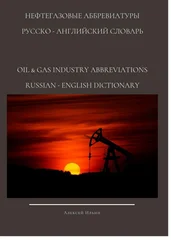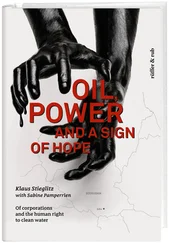Vagit Alekperov - Oil of Russia
Здесь есть возможность читать онлайн «Vagit Alekperov - Oil of Russia» весь текст электронной книги совершенно бесплатно (целиком полную версию без сокращений). В некоторых случаях можно слушать аудио, скачать через торрент в формате fb2 и присутствует краткое содержание. Жанр: Старинная литература, на английском языке. Описание произведения, (предисловие) а так же отзывы посетителей доступны на портале библиотеки ЛибКат.
- Название:Oil of Russia
- Автор:
- Жанр:
- Год:неизвестен
- ISBN:нет данных
- Рейтинг книги:4 / 5. Голосов: 1
-
Избранное:Добавить в избранное
- Отзывы:
-
Ваша оценка:
- 80
- 1
- 2
- 3
- 4
- 5
Oil of Russia: краткое содержание, описание и аннотация
Предлагаем к чтению аннотацию, описание, краткое содержание или предисловие (зависит от того, что написал сам автор книги «Oil of Russia»). Если вы не нашли необходимую информацию о книге — напишите в комментариях, мы постараемся отыскать её.
Oil of Russia — читать онлайн бесплатно полную книгу (весь текст) целиком
Ниже представлен текст книги, разбитый по страницам. Система сохранения места последней прочитанной страницы, позволяет с удобством читать онлайн бесплатно книгу «Oil of Russia», без необходимости каждый раз заново искать на чём Вы остановились. Поставьте закладку, и сможете в любой момент перейти на страницу, на которой закончили чтение.
Интервал:
Закладка:
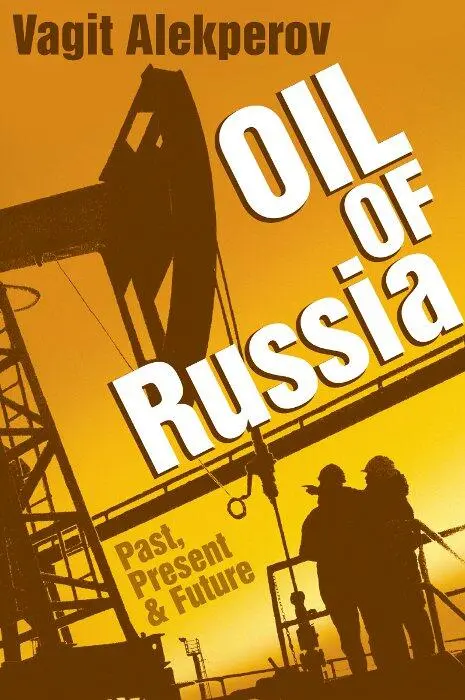
Vagit Alekperov
OIL OF Russia
Past, Present & Future

East View Press
Minneapolis
Also by Vagit Alekperov
Russian Vertically Integrated Oil Companies
Russian Oil: A Top Manager’s View
Edited by Vagit Alekperov
The Eve of the Petroleum Era
Soviet Union’s Oil
New Russia’s Oil
OIL OF RUSSIA: PAST, PRESENT AND FUTURE
Copyright © 2011 by Vagit Alekperov
All rights reserved.
Translated from the Russian by
Paul B. Gallagher and Thomas D. Hedden
Assisted by Todd Jackson
pbg translations, inc.
Edited by Alex Lane and Laurence Bogoslaw
Managing Editor Ana K. Niedermaier
Cover Design by OROPACK Design Bureau
Library of Congress Cataloging-in-Publication Data
Alekperov, V. IU. (Vagit IUsufovich), 1950-
Oil of Russia: past, present, and future / Vagit Alekperov; translated from the Russian by Paul B. Gallagher and Thomas D. Hedden. – 1st ed.
p. cm.
Includes bibliographical references and index.
ISBN 978-1-879944-07-7 (hardcover)
1. Petroleum industry and trade-Russia (Federation)–History. 2. Lukoil (Firm)–History. I. Title.
HD9575.R82A6194 2011
338.2’7280947–dc22
2010040119
All photographs, artwork, pictures and illustrations contained in this book have been used with the express written consent of the LUKOIL Oil Company.
Published by East View Press,
an imprint of East View Information Services, Inc.
Minneapolis
Printed in the United States of America
First Edition 2011
1 3 5 7 9 10 8 6 4 2
CONTENTS
Note to Readers
Foreword
CHAPTER ONE
The Russian Empire’s “Black Gold”
CHAPTER TWO
Oil in the Land of the Soviets
CHAPTER THREE
The New Russia’s Oil
Conclusion
Overview of Major Russian Oil Companies
Select Glossary
Profiles of Key Historical Figures
Abbreviations
Conversion Table
Notes
Selected Bibliography
Other Works by Vagit Alekperov
Index
Acknowledgments
About the Author
Note to Readers
Vagit Alekperov needs no introduction to anyone in the oil business. As president of LUKOIL, Russia’s largest non-state-owned oil and gas company, he is well known for his business acumen, inexhaustible vigor, and genuine charm. Even if your life is only slightly affected by petroleum (and I am willing to bet that if you are holding this book—it is), you are probably familiar with his name.
It may be less well known that Vagit is also a member of the Russian Academy of Natural Sciences. Over the past decade, Academician Alekperov has led a team of researchers seeking to salvage the history of the Russian oil industry from the oubliette of tsarist and communist-era archives. On reflection, this distraction from the demands of business reveals itself as a wise investment. In an industry where project-planning horizons are decades long and global in scope and where quotidian acts often reach historic proportions, a keen appreciation of history is not just a reward but a prerequisite for success. We can be grateful that Vagit is sharing his insights into a subject that has long suffered from regrettable obscurity and lack of access.
Russia’s oil industry has always been important to Russia and to the global energy supply system as a whole. Its image, however, has so often been distorted by a combination of ideology, fear, and romance that many promising commercial opportunities have withered or failed to materialize in the resulting atmosphere of uncertainty and mistrust. My personal and business experience in Russia has been decidedly positive. I credit this in no small part to my relationship with Vagit and his company. Thus, it is a special pleasure to see his unfiltered account of the Russian oil industry make its debut in English. I am hopeful that the understanding it fosters will strengthen and multiply constructive cooperation with our Russian partners and help promote global energy and environmental security.
Oil of Russia: Past, Present and Future is both a result and a welcome symbol of Russia’s increasing openness and renewed engagement in the world.
Jim Mulva
Chairman and Chief Executive Officer
ConocoPhillips
December, 2010
Foreword
In the early 21st century, mankind has encountered serious global problems that pose considerable complications for the further development of civilization. Who can forget the major climate changes that produced heavy snowfalls in various European countries this past winter and brought snow even to New Zealand in October 2009? Over the past 30 years, the world’s average temperature has risen 1.1°F. Meanwhile, a more arid climate has already shortened the growing season in the Sahel region of sub-Saharan Africa, fueling ongoing armed conflicts in a region already suffering from a shortage of water and foodstuffs. And in Central America, stronger hurricanes threaten to seriously undermine the economy of developing countries and destabilize the political system, thereby encouraging a new flow of migrants.
Here we should also include the visible consequences of biosphere degradation: in the last two centuries, the world has lost two-thirds of its forests, two-thirds of its arable land, and seen its ocean, sea, and river bioresources seriously depleted. The Earth’s biodiversity is threatened— 110 vertebrate species have already completely disappeared. Mankind is beginning to experience a shortage of drinking water and nearly 1.2 billion of the Earth’s population now suffer from a shortage of water resources, while 2.6 billion have no access to elementary sewage systems.
These alarming trends are precisely why the Millennium Declaration, adopted by the UN in 2000 and approved by all its members, identified the assurance of sustainable environmental development and the formation of a global development partnership as its principal goals.
At present, the ever-faster globalization of the world economy due to objective factors in the development of modern civilization requires further and further extension of the international division of labor and economic specialization at the national level, acceleration of scientific and technical progress, computerization, enhancement of the roles of financing and services in all commercial fields (especially in transportation and communications), and reduction in the economic distance between countries to bring them closer together and unite them. Literally before the eyes of a single generation, enormous new regions in the former stagnant periphery and areas of human activity have been introduced into the world economy. The Internet and mobile telephone communications have destroyed the mental boundaries between countries, bringing hundreds of millions of people of various nationalities and faiths together to share common human values and scientific advances. It is this very rapprochement and unification of countries and ethnic groups that reveals globalization’s most important economic essence: globalization as a worldwide process of growing economic interdependence among all the world’s countries, with a tendency toward a gradual transition toward the development of those countries based on a higher principle, that of economic complementarity.
Читать дальшеИнтервал:
Закладка:
Похожие книги на «Oil of Russia»
Представляем Вашему вниманию похожие книги на «Oil of Russia» списком для выбора. Мы отобрали схожую по названию и смыслу литературу в надежде предоставить читателям больше вариантов отыскать новые, интересные, ещё непрочитанные произведения.
Обсуждение, отзывы о книге «Oil of Russia» и просто собственные мнения читателей. Оставьте ваши комментарии, напишите, что Вы думаете о произведении, его смысле или главных героях. Укажите что конкретно понравилось, а что нет, и почему Вы так считаете.
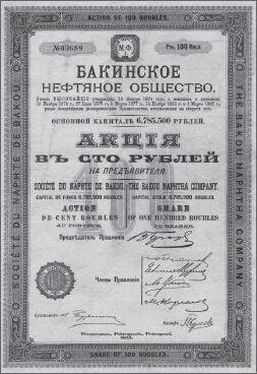
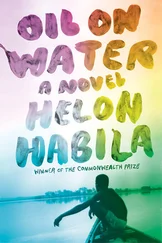
![Stephan Orth - Behind Putin's Curtain - Friendships and Misadventures Inside Russia [aka Couchsurfing in Russia]](/books/415210/stephan-orth-behind-putin-s-curtain-friendships-a-thumb.webp)

